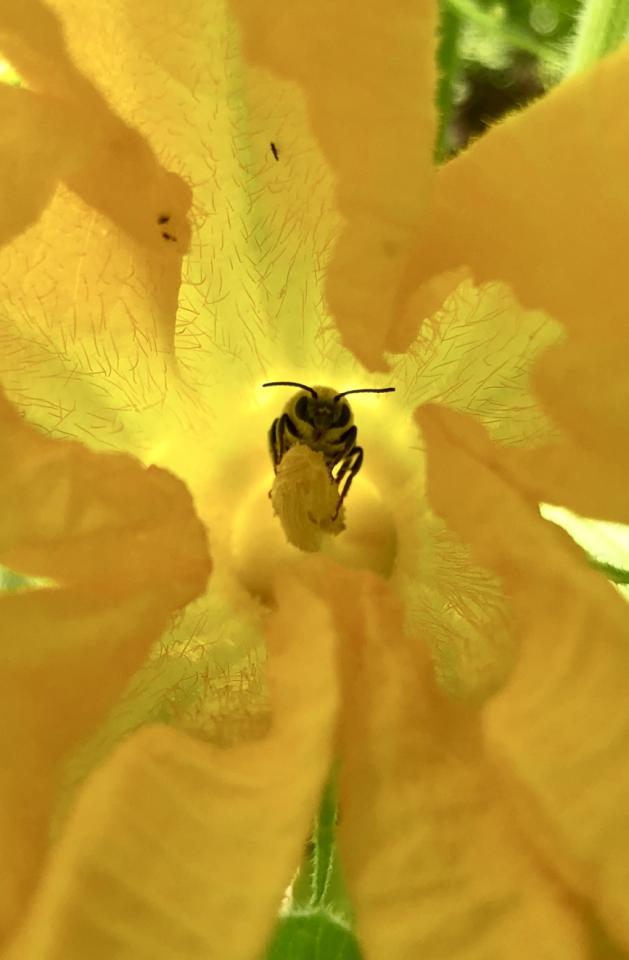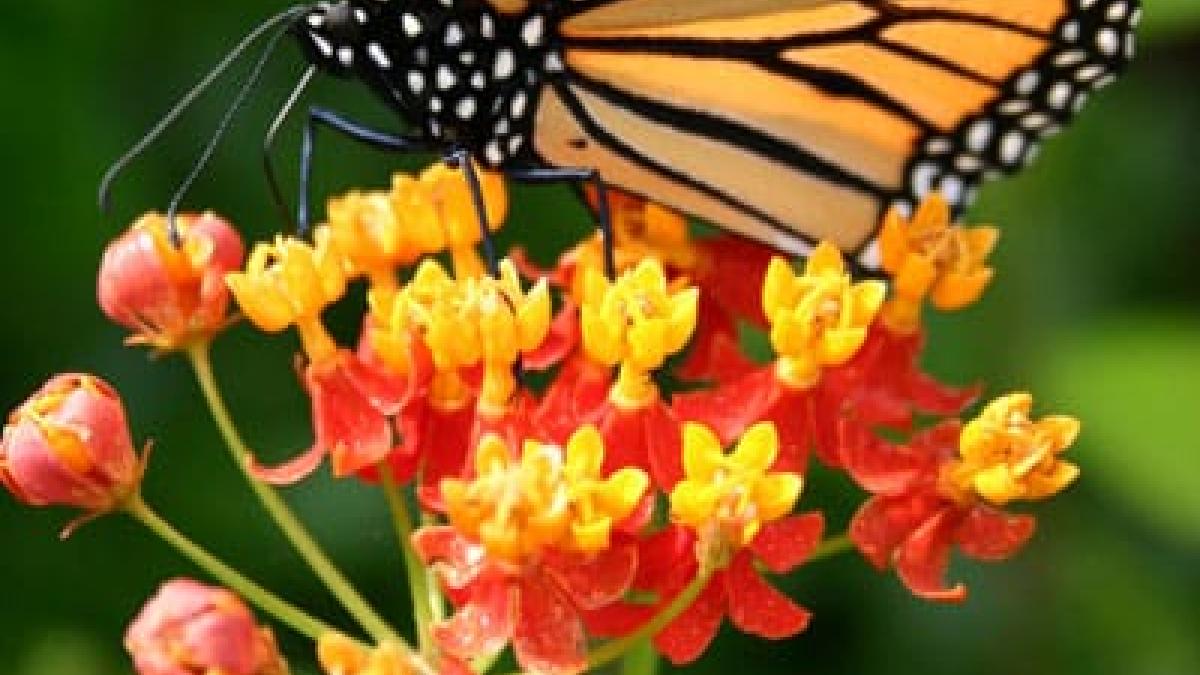Barrie became the 30th Bee City in Canada in July 2019. A Bee City is a designation that connects people, places, and pollinators. Our commitment is to protect and create pollinator habitats, provide community education, and celebrate our pollinators. Becoming a Bee City means there will be more focus on pollinator conservation within current parks and future urban planning.
Did you know? Barrie is also certified as a Bird Friendly City.
What are Pollinators?
A pollinator is anything that transports pollen grains from one flower to another. This includes bees, birds, bats, butterflies, moths, flies, wasps, and beetles. Other animals, even people, can also act as indirect pollinators if they brush up against pollen and transport it to another flower. When a pollen grain moves from the anther (male part) of a flower to the stigma (female part), pollination happens. This is the first step in a process that produces seeds, fruits, and the next generation of plants. This can happen through self-pollination, wind, and water pollination, or through the work of animals or insects. (Source: Pollinator.org)
Canadian pollinators include more than 800 native bee species and other bugs that can be found in both rural and urbanized areas, with cities playing a key role in their survival.
Why are Pollinators Important?
Pollinators create healthy ecosystems by pollinating about 80 per cent of plants including flowers, trees, fruits, and vegetables, which provide products for people such as food, medicine, clothing, and lumber.
Research from around the world supports evidence that pollinator populations are declining. Climate change, pesticide use, habitat loss, and disease are all contributing factors.
Pollinator Initiatives
The City of Barrie has removed the use of cosmetic pesticides from our operations and has been active in creating pollinator spaces by:
- Supporting various habitat installations such as the bee hotel at Sunnidale Park, bat boxes near Harvie Road, Tall Trees Park, and Bear Creek Eco Park.
- Installing pollinator gardens at Sunnidale Park, North Centennial entrance beds, Northshore Trail, Allandale Station Park, Hyde Park, and at the Sports Complex.
- Increasing the number of community gardens and seed boxes in our parks.
- Continuously working to increase naturalized areas within our parks.
- Recognizing Pollinator Week in June each year. It's an annual event celebrated across the world in support of pollinator health, a time to learn about the importance of pollinators and spread the word about what we can do to protect them.
- Launching the Barrie Native Plant Explorer, a database that lets you:
- Create your own biodiversity hotspot by selecting the native flowering species found in this plant database to attract more insect species, which in turn attracts greater numbers of birds and other wildlife
- Engage in citizen science by visiting the "Tools" section to share your observations of the natural world on inaturalist.org
- Build a library of plants for your reference or help others build their own
- Take a quiz to test your plant and pollinator knowledge

Make Your Yard More Pollinator-Friendly
- Visit the Barrie Native Plant Explorer database to discover native plants in our urban and natural environment and choose the right plant for the right place.
- Sow native seeds in the winter to support local biodiversity and promote the growth of native plants. Read our guide on winter sowing for native plants.
- Plant multiple pollen and nectar-producing native plants that bloom in different seasons to attract a diversity of bees and other pollinators.
- Provide nesting places by leaving bare patches of ground for native bees to build nests in soil, or leave hollow stems to attract cavity-nesting bees.
- Offer fresh water to pollinators in a shallow dish or birdbath.
- Garden without pesticides.
- Bats are important pollinators and they help spread seeds. If you want to help bats during the winter, you can build them a house. Bat houses should be 15 ft high, preferably on a post or a building, and located in full sun. Visit batweek.org for more information on how to build a bat house.
Additional Resources
- Pollinate Barrie | How to Winter Sow
- LSRCA | Native Species in the Lake Simcoe Watershed
- David Suzuki Foundation | How to Attract Pollinators
- Xerces Society | Native Plant, Seed and Services Directory
- Xerces Society | Habitat Assessment Guide for Pollinators in Yards, Gardens, and Parks
- Manitoulin-Lake Simcoe Ecoregion | Selecting Plants for Pollinators
- Seed Sitters Club | Growing Native Plants at Home
- Credit Valley Conservation | Native Plants for Pollinators
- Xerces Society |Native Plants for Pollinators and Beneficial Insects: Great Lakes
Frequently Asked Questions



